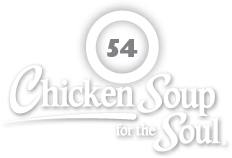
Prejudices are the chains forged by ignorance to keep men apart.
~Countess of Blessington
I sat in a chaise lounge watching waves crash along Hawaii’s Big Island coastline. Turning to my sister and brother-in-law, I said, “Dave and I are learning Spanish.”
My husband Dave nodded and smiled from the pool where he floated on an inflatable mat.
“Really. Why?” Conversation came slowly and easily between my sister and me as she sipped her drink. I glanced out to sea and considered my reply. Multiple reasons enticed me to study another language, making it difficult to explain. I blinked, scenes from the morning spent downtown twinkling in my memory . . . the Portuguese man serving Scandinavian-style shaved ice, the African American woman selling Kona coffee, the Japanese server at the Italian restaurant where we enjoyed lunch. So many individuals working together, muddying nationalities and cultures to create an incredible mosaic of life.
Then I thought back to my childhood. I saw myself sitting in my mother’s lap, every need met, unaware of the drama entwined within my family’s roots. As I grew, I had no clue that another story waited beneath the surface, one filled with hardship.
Like many babies, I was unplanned. A late, but as my parents assured me, much adored surprise. Living within the glossy bubble of a childhood spent in 1960s California, I never imagined anything beyond sun and fun. But one day I’d asked my mother an adolescent girl’s favorite question: “How did you and Daddy get together?” I’d expected the usual vague response, something involving moonlight and birdsong.
Instead, the answer Mom chose to share that evening was steeped in sadness. It wasn’t the fairy tale I’d imagined — not by a long shot.
Maybe she considered me mature enough to hear the truth. I sat quietly, leaning closer on the old damask couch to grab every bit. Each scent, texture, and sound from that moment is ingrained in my memory.
She’d grown up in Germany in the 1920s. A bookkeeper for the local government when World War II broke out, she didn’t support Hitler’s regime. Because of their political leanings, her family was under constant watch by the Nazis. After the war, a wounded German soldier moved into the apartment below them.
My father, an American soldier, was stationed in Germany to take part in the de-Nazification process. His duties included keeping an eye on German ex-military, to make sure nothing was brewing beneath the surface.
One day, as my father was visiting with the soldier downstairs, Dad spotted my mom and sparks kindled. He tried to strike up a conversation with her, but since neither spoke the other’s language, they struggled. Months passed, and through their painstaking efforts, friendship evolved into love. As soon as it was possible, they eagerly married and moved to America.
But the United States didn’t accept her with open arms. Thousands and thousands of our men had died as a result of Hitler’s murderous insanity. A lot of the people my parents encountered saw all Germans as culpable.
Yet there were a few who chose to forge friendship with her. They listened, really listened — not only to the words spoken, but also to those unspoken. They accepted my mother’s differences and embraced them, from her cooking to her unique and earthy sense of humor. They forgave her for her country’s sins. The kindness they showed helped my mother to find a place to fit into our society, her own way to belong and make a difference.
Years passed, and my mother taught herself how to read English. She felt confident enough to study for and receive her citizenship. As proud as I’d been of her prior to that time, my pride doubled.
Now, as a bicultural adult, I realize that my perspective is different from many of my friends. Wartime atrocities in my mother’s native land shrouded her in unwarranted guilt that took her decades to overcome. But the post-war shunning she endured at the hands of my fellow Americans shames me.
I’m aware of the way those without a voice are treated and mistreated. Studying Spanish so I can better understand my new countrymen, I’m hoping to share in their joys and sorrows, and maybe replace bad memories with happier ones. Mom was proud to be a citizen. So am I. And I welcome every mother, father, and child who wants a seat on this kaleidoscopic ride.
As the daughter of an immigrant, I’m doubly blessed. I see both sides, and I know where I belong: right here in America.
~Heidi Gaul
